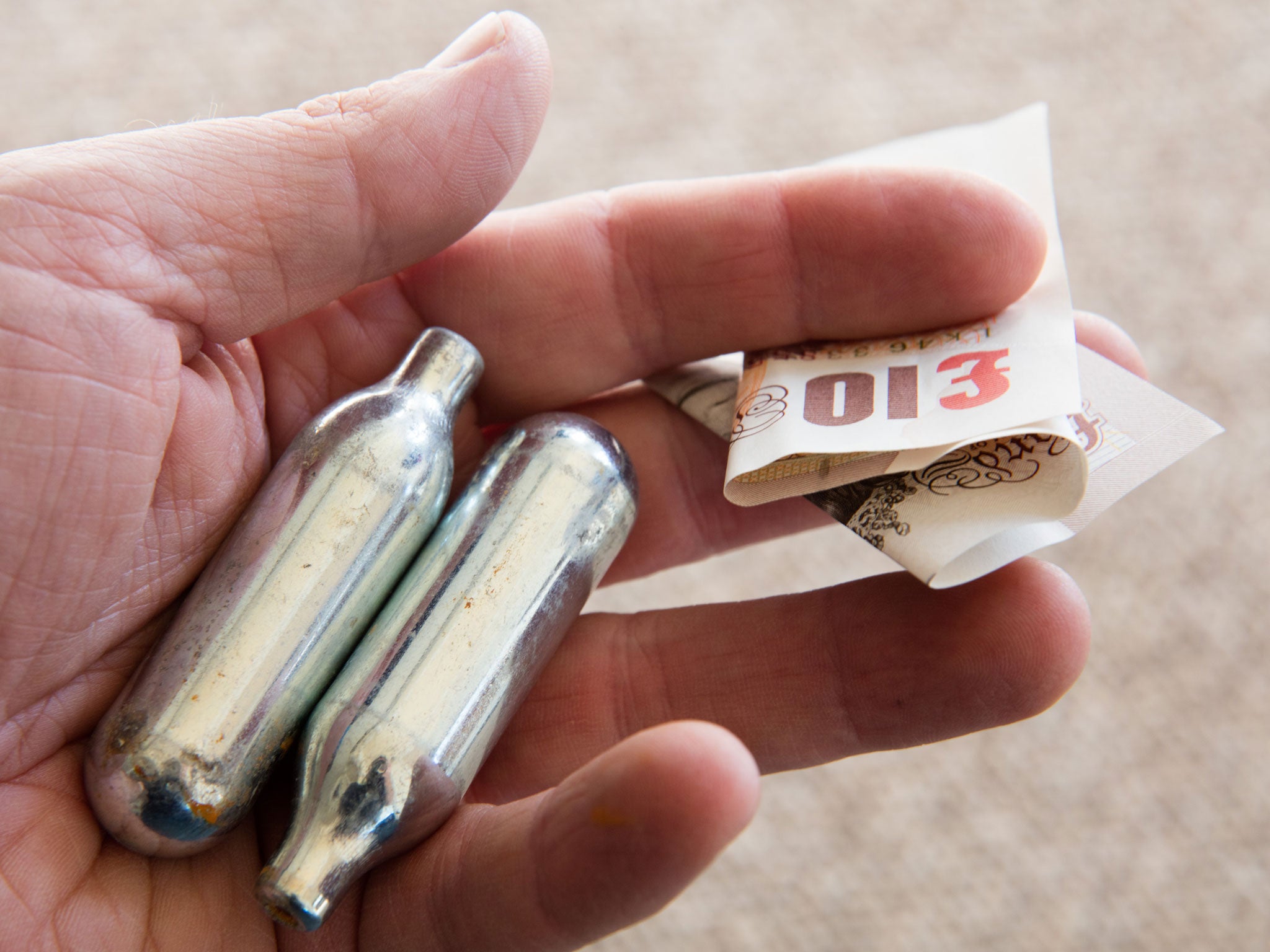Laughing gas ban: Judge rules 'hippy crack' still legal despite law which bans psychoactive substances
Lawyer argues nitrous oxide is exempt under the law because it is used as a medicinal product

Laughing gas could still be legal after a judge dismissed a case, saying the drug is not covered by a law which bans "legal highs".
Nitrous oxide, more commonly known as "laughing gas", was banned under the Psychoactive Substances Act which came into force last year.
The Act banned the production and supply of all psychoactive substances, but includes a list of exemptions including food, medicinal products defined by the Human Medicines Regulations, alcohol, nicotine and caffeine.
Now, a judge in a criminal trial has ruled that nitrous oxide, which is also used in anaesthetics, is not actually covered by the Act.
Ryan Egan and Kennan Buckley appeared in front of the judge in Taunton Crown Court after they were both charged with one count of possession of a psychoactive substance with intent to supply.
They were arrested on their way into Glastonbury festival last year, Metro reported.
Defence barrister, Ramya Nagesh, from Chambers in Birmingham, argued that according to the definitions in the Act, nitrous oxide does not meet the criteria to be banned as a psychoactive substance.
For a substance to be banned under the Act, it needs to be identified as psychoactive, which means making a person feel "high" with symptoms including hallucinations, changes perception of time and space and drowsiness, and it must not figure in the list of exemptions.
Ms Nagesh argued that nitrous oxide is commonly administered as medicine, which falls under one of the exempt categories.
The Act does not make it clear the substance is exempt only when it is used for medicinal purposes, nor does it specify the form nitrous oxide should take to fall under the Act.
The use of nitrous oxide for medical purposes requires a marketing authorisation under the 2012 Human Medicines Regulations.
Judge Paul Garlick QC dismissed the case on the basis nitrous oxide was, in his view, an exempted substance under the Act.
The ruling does not act as a legal precedent but could be used to inform judgments handed down by crown courts or magistrate courts across the country.
A spokeswoman for the Home Office said: "Nitrous oxide is covered by the Psychoactive Substances Act and is illegal to supply for its psychoactive effect.
"However, the Act provides an exemption for medical products. Whether a substance is covered by this exemption is ultimately one for a court to determine based on the circumstances of each individual case.
“These dangerous drugs have already cost far too many lives and the Psychoactive Substances Act is sending out a clear message – this government will take whatever action is necessary to keep our families and communities safe."
In 2016, there were 28 convictions in England and Wales under the Act and seven people were jailed.
According to a crime survey in 2013/14, nitrous oxide was the second most popular recreational drug among young people.
Join our commenting forum
Join thought-provoking conversations, follow other Independent readers and see their replies
Comments